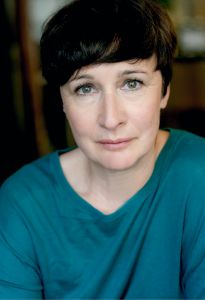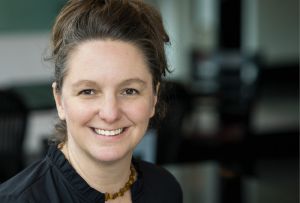A Project on Dying at the Max Reinhardt Seminar
Romeo drinks poison and Juliet stabs herself with a dagger; Stella drinks poison and Fernando shoots himself; Woyzeck murders Marie in a fit of bloodlust with countless stabs of a knife; Ferdinand kills Luise and himself with poison; Moritz shoots himself out in the forest and Wendla dies during an abortion.
Those who become professional actors necessarily end up developing a certain relationship with death. “We do quite a lot of dying,” says Ulrike Arnold: “We die and we also kill, onstage and onscreen.” This Munich-based actor and director has been guest-directing since January at the Max Reinhardt Seminar, where she’s teamed up with dramaturge Ulrike Syha and seven acting students to prepare the evening programme Über die Kunst sich tot zu stellen [On the Art of Playing Dead] (2 to 6 March 2020). Although death plays a large role in theatre, particularly in the classic dramatic literature (“Lots of things end in death or can only be resolved through death.”), the process of dying onstage is seldom dealt with, as these two theatre pros ascertained, nor do acting schools explicitly include the topic of dying in their curricula. The assumption is presumably that a director will provide his or her own solution for the issue of death “regardless”, says Arnold, who’s glad to be in Vienna speaking particularly with “young students about this part of their profession, students who’ll very soon be dealing with those big, difficult themes with which they perhaps haven’t yet had to deal in their own lives. But it’s also about questions like: What does it actually mean to lie onstage for 20 minutes and do nothing but listen to what’s happening without moving a muscle?”

The material on which this evening is based comes from classic texts—by Büchner, Schiller, Shakespeare, and Wedekind—supplemented with writings of contemporary authors as well as theory. “We’ve ascertained that many contemporary works avoid the actual act of dying and instead produce a sort of blank, while the classic texts are more explicit and detail precisely who is stabbed how with the dagger,” says the dramaturge Ulrike Syha. It’s important to her to work on an equal footing with the students, whom she’s encouraged to also contribute their own input. “It’s a project that’s growing along with the students, that we’re continuing to develop together. So we’re also looking to take up the impulses that come from them—like asking how it feels to die onstage five times in a row. What does that lead to?” This Max Reinhardt Seminar project is being treated as a working studio or laboratory where the play that will eventually go onstage is developed in a discursive manner.
Among other things, the reading involved sharpens participants’ eyes for clichés. Women shouldn’t exclusively play victims, says Ulrike Arnold, adding: “All actors should have a chance to be featured in their various qualities.” What’s more, the attempt to combine classic with contemporary dramas also shows how society’s attitude towards dying and death has changed.

Can the process of dying really be acted out on stage? After all, it’s an experience that no living actor, female or male, has ever had. But in this project, Ulrike Arnold and Ulrike Syha are concerned not with technical tricks or tools of the trade, but rather with reflection and introspection—and with sensitising students to their own personal boundaries. “Men often take dying quite sportingly: dramatic stage deaths, swordfights or battle scenes where the slaughter often goes on for several minutes … that can indeed be fun from a technical and sportive standpoint,” says Arnold, who demands nonetheless that the issue of self-protection be discussed during actors’ training. “Myself, I’ve been in theatre for a long time—but after an evening when I’ve killed someone and spilled five litres of stage blood doing it, I can’t just march straight down to the cafeteria and order a schnitzel. That’s not how it works. I need a moment of ritual leave-taking, 10 minutes to be with myself, shut off the play, and come back to everyday life.” Self-protection, self-organisation, and efficiency are essential qualities for actors, she says, and consciousness of these things needs to be instilled during one’s training.
Syha likewise seeks to encourage students to carefully listen into themselves: “We have to explore for ourselves just how we can utilise our discomfort with a theme for our own artistic work, also ascertaining the point where it doesn’t get us any farther or might even cause harm. And playing death onstage provides an ideal model of this process that’s good for figuring out our own boundaries. We want to feel for where this discomfort is, despite all the fun you can have with a lot of stage blood—because it all really is a double-edged sword!”
“Über die Kunst sich tot zu stellen” at the Max Reinhardt Seminar

